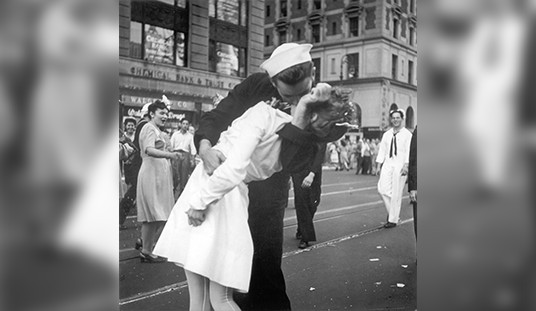Last week – yes, in anno domini 2013 – the Romanian Supreme Court – yes, the highest court in the country – declined to cancel a 1974 death sentence issued by a two-bit communist Dracula named Ceausescu to an anti-communist, Constantin Răuţă, who is now an American citizen. This American “traitor” committed the “crime” of “betraying” communist Romania’s criminal political police, the brutal Securitate, and of helping the United States to defeat the Soviet evil.
It would be farcical, if it were not so utterly devastating for the international prestige of both NATO and Romania.
Răuţă is a reputable American scientist, who over the past thirty years worked on important U.S. aerospace projects. His native Romania will soon be protected by a ballistic missile defense system in the development of which, ironically, Răuţă himself played a role. Construction of that U.S. interceptor missile facility in Deveselu, Romania, is scheduled to be finished in 2014. Yet, absent a miracle, Răuţă will be still sentenced to death in that country.
On November 23, 2002, when the Romanians were officially informed that their country was being seated at the NATO table, a rainbow appeared in the sky over Bucharest. President George W. Bush, visiting the Romanian capital at the time, told a cheering crowd, “God is smiling at us.” God was indeed smiling at Romania. From one day to the next, that country, which had endured a long and dark history of Roman, Ottoman, Phanariot and Soviet occupations, no longer had to fear foreign domination. American weapons—some designed by Răuţă—and American soldiers—some now stationed in Romania—are committed to defending that country’s territorial integrity.
Yet some members of the Romanian justice system seem incapable of facing up to the fact that their country has been admitted into NATO, although they are perhaps even being chauffeured around in limousines imported from NATO countries.
In the past five years, 6,284 people sentenced by the communists for, in one way or another, helping the United States and NATO to demolish the Soviet empire have asked to have their sentences canceled, but only three have succeeded—because of media pressure. More than 500,000 patriots killed or terrorized by the communists have yet to be rehabilitated.
Post-Ceausescu Romania has been transformed in unprecedented positive ways. The barriers the communists and the Securitate spent 40 years erecting between Romania and the rest of the world, as well as between individual Romanians, are slowly coming down. Private propriety is being gradually restored, and a new generation of intellectuals is struggling to develop a new national identity. On December 18, 2006, the Romanian president condemned communism as “an unlawful and culpable regime,” and he apologized to those whose lives had been destroyed by despotism. In a speech to the nation, he explained that the right to condemn communism’s crimes was given to him by “the need to make Romania a country of laws.” The current Romanian prime minister, a former prosecutor himself, fully agreed.
[jwplayer config=”pjm_mahaipacepa” mediaid=”259″]
Condemning the heresies of the past is indeed the most difficult step in the transition from tyranny to democracy. In the 1950s, when I was deputy chief of the Romanian trade mission in West Germany, I witnessed how the Third Reich was demolished, and how the country became a Wirtschaftswunder (economic miracle) that made it the leading power in Europe. But not until 1998 was the Bundestag able to adopt a law canceling the sentences given to Claus von Stauffenberg, who had led a plot to assassinate Hitler, and to all other Germans who had, in one way or another, helped the Allies fight Nazism. Horst Heymann, the president of the Bundestag commission that initiated this law, apologized to the German people because their parliament had taken 50 years to arrive at that point. Now the Germans who fought Nazism are honored in the grandiose Haus der Geschichte der Bundesrepublik Deutschland, the country’s new museum of history.
Germany needed half a century to condemn Nazism, because that heresy was born in Germany and was rooted in her soil. Communism and its political police were not born in Romania. They were imported from the Soviet Union, and Romania should not wait for new generations to repudiate them.
It is now time for the Romanian president, prime minister and parliament to move from words to action, and to initiate a Heymann-style law that would rehabilitate—judicially and politically—the hundreds of thousands of anti-communists who are still sentenced in Romania, twenty years after the Soviet empire collapsed.
It is also time for Romania’s leaders and for her media to make a fundamental decision: What does “treason” really mean, and who is really a “traitor”?










Join the conversation as a VIP Member